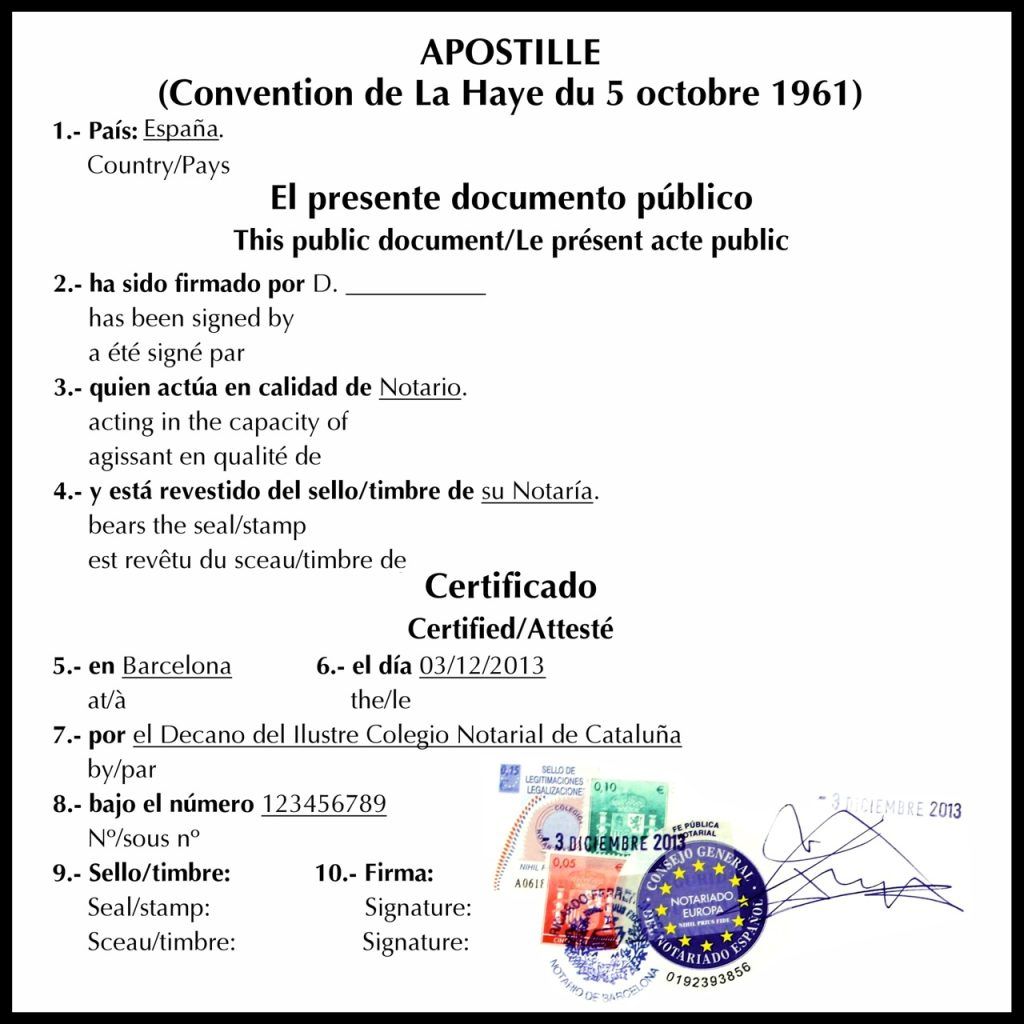Why is the Hague Apostille essential for the international authentication of documents?
Patrick Gordinne Perez2023-05-30T13:44:07+00:00Table of Contents
Introduction to the Hague Apostille

What is the Hague Apostille?
The Apostille is a simplified method of authenticating documents for use in foreign countries. It is a certificate attached to a document that verifies the authenticity of the signature and seal of the person who signed the document. The Hague Apostille is recognised by more than 100 member countries of the Hague Convention.
Purpose of the Apostille
The purpose of the Apostille is to simplify the process of authenticating documents for use in foreign countries. The Hague Apostille eliminates the need for lengthy and complicated legalisations, saving time and money for individuals and organisations.
The difference between an apostille and a legalisation
The Hague Apostille is a simplified form of legalisation of documents for use in foreign countries. Legalisation is the process of authenticating a document for use in a foreign country. The Hague Apostille is a simplified form of legalisation used in member countries of the Hague Convention.
Countries that accept the Hague Apostille
The Hague Apostille is recognised by more than 100 member countries of the Hague Convention.
List of countries that accept the Hague Apostille.
These countries include most countries in Europe, South and Central America, as well as some countries in Asia and Africa. Countries that are not members of the Hague Convention require a longer and more complicated legalisation to authenticate documents.
Documents that require an apostille
Court documents
Administrative documents
Notarial documents: Please note that the apostille for notarial documents is the sole responsibility of the Chamber of Notaries.
The Hague Apostille is used to authenticate a wide range of documents, including birth, marriage and death certificates, university diplomas and degrees, powers of attorney, deeds, commercial and judicial documents, and government documents such as passports and visas.
It is important to note that each country may have specific requirements for document authentication.
Documents that do NOT require an apostille
Documents issued by diplomatic or consular officials.
Administrative documents directly related to a commercial or customs operation.
How to get an apostille
To obtain a Hague Apostille, you must first ensure that your home country is a member of the Hague Convention. Once you have confirmed this, you must present the original document to the body responsible for issuing the Hague Apostille in your home country.
In Spain, this is the Ministry of Justice. The body in charge of issuing the Apostille will verify the authenticity of the document and issue the Apostille certificate.
Ways to obtain the Hague Ppostille
Links to obtain the Hague Apostille
The Apostille can be obtained :
Common mistakes when obtaining an Apostille
One of the most common mistakes when obtaining an Apostille is not checking whether your country of origin is a member of the Hague Convention. Another common mistake is to submit a copy of the document instead of the original. It is also important to ensure that the document is complete and legible before submitting it for authentication.
The importance of using a professional document authentication service
It is advisable to use a professional document authentication service to ensure that the authentication process is carried out correctly. A professional service can help verify whether your country of origin is a member of the Hague Convention, ensure that the document is complete and legible, and present the original document to the body responsible for issuing the Apostille.
In addition, professional services can help speed up the authentication process and ensure that all specific requirements of the destination country are met.
Conclusion
In conclusion, the Hague Apostille is a vital tool for ensuring the legal validity of official documents abroad. It is recognised by more than 100 Hague Convention member countries and eliminates the need for lengthy and complicated legalisations, saving time and money for individuals and organisations.
It is important to check whether your home country is a member of the Hague Convention and to use a professional document authentication service to ensure that the authentication process is carried out correctly.






